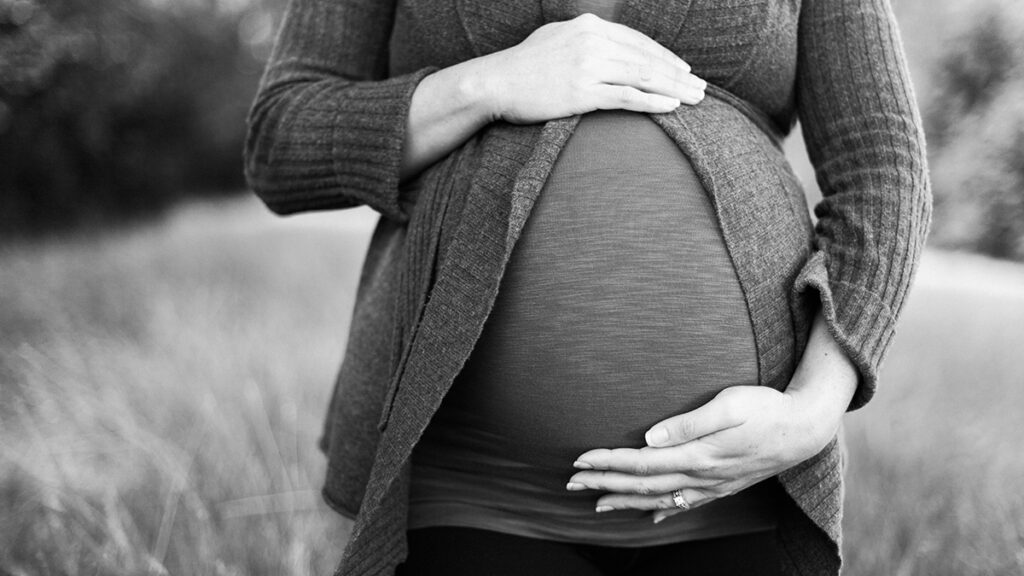Abortion is never medically necessary to save women’s lives
Since the beginning of the fight to legalize abortion, the claim that abortion prevents a woman from dying in the case of pregnancy complications has been a compelling argument. In reality, however, the therapeutic value of abortion has never been confirmed by rigorous scientific evidence.
John F. Murphy and Kieran O’Driscoll, the authors of a study whose results were published in Therapeutic Abortion: The Medical Argument, concluded that a therapeutic abortion would not have prevented any of the 21 maternal deaths that occurred among the 74,317 pregnancies they studied.
In their unique study, Murphy and O’Driscoll looked at the medical histories of deceased pregnant women. Of the 21 cases, seven were unrelated to pregnancy and therefore could not have been prevented by abortion, 11 were the result of pregnancy but the complications could not have been foreseen and prevented, and three were the result of a chronic illness. As a result of a careful analysis of each of the last three cases, the researchers concluded that a medically unnecessary abortion could not have been recommended in any of them.
In the article they underscore an important problem: “Even after decades of experience with abortion, not a single case-control study has been published showing that abortion has statistically significant benefits over childbirth. This is true for both the general population of healthy women and the population of unhealthy pregnant women.” [1]
A number of authors dealing with maternal mortality unanimously state that recommendations in favor of abortion for health complications are based on nothing (this does not apply to surgery performed during pregnancy to improve the health of the mother at risk to the child). Russian expert Elena Gavrilova confirms that, in practice, banning abortion and ensuring competent management of pregnancies with complications do not lead to increased mortality. [2]
“Although some diseases are known to increase the risk of death during pregnancy or childbirth, there are no studies that have demonstrated lower mortality rates among women with a certain type of disease who choose abortion. At least some researchers have concluded that although women with these conditions may not want to get pregnant, once they become pregnant, there is no evidence to suggest that abortion poses less risk to their health than careful pregnancy management,” stated John Thorpe, David Reardon, and their co-authors in “Deaths Associated with Abortion Compared to Childbirth” [3].
Complications that significantly increase the risk of death in childbirth, such as Eisenmenger syndrome, make any procedure, including abortion, problematic: its risks are now equal to or greater than those associated with spontaneous childbirth. Nevertheless, until recently, the indication for abortion in this syndrome was considered absolute [4].
Researchers explain that the rate of death in childbirth in healthy women is extremely low; up to 90% of maternal deaths related to childbirth involve a cesarean section. (100 deaths per 100,000 cesarean deliveries compared to 1.1 per 100,000 natural deliveries). They confirm Murphy and O’Driscoll’s conclusions that there are no studies that prove that abortion may actually be safer for women with known health problems that cause the risk of death in natural childbirth. There is only speculation that this may be true. Clearly, the researchers believe, carefully designed case-control studies are needed to determine whether abortion can even be considered to reduce the risk of death during pregnancy complications compared with childbirth.
In this regard, David Grimes’ statement could not be more true: “uncritical thinking hurts women and children all over the world.” [5].
“While a number of medical experts will certainly continue to defend the view that abortion is a safe alternative to childbirth, this view can no longer be characterized as an ‘established fact.’ It is at best an unsubstantiated opinion or hope, and at worst an ideological mantra.” [3]
1. Murphy J.F., O’Driscoll K.. Therapeutic Abortion: The Medical Argument // IRISH MED. J. – 75 (8), Aug. 1982. – P. 304-306. – https://pubmed.ncbi.nlm.nih.gov/7129852/
2. Kukhtenkova O. Elena Gavrilova: An interview with a doctor who revealed shocking facts about abortion. – https://ifamnews.com/ru/elena-gavrilova-interv-vraca-raskrvsego-sokiruie-fakt-ob-abortah
3. Reardon D.C., Strahan T.W., Thorp Jr. J.M., Shuping M.W. Deaths Associated with Abortion Compared to Childbirth – A Review of New and Old Data and the Medical and Legal Implications // Contemp. Health L. & Pol’y J. – Vol. 20, Iss. 2, 2004. – P. 279-327. – https://scholarship.law.edu/jchlp/vol20/iss2/4
4. According to Russian authors, data on maternal mortality in Eisengörger syndrome are quite contradictory, ranging from 20 to 60%. See: Mravyan SR, Shuginin IO, Pronina VP, Terpigorev SA Pregnancy in Eisemenger syndrome: is it always contraindicated? // Almanac of Clinical Medicine – № 29, 2003. – C. 8-13. – https://cyberleninka.ru/article/n/beremennost-pri-sindrome-eyzenmengera-vsegda-li-ona-protivopokazana/viewer
Some of the data reviews relied on by the authors date back to the 20th century and another level of study of the issue. “Previously, it was believed that the threat of Eisenmenger syndrome was an absolute indication for termination of pregnancy, and this pathology was not compatible with gestation. Currently, the effect of pregnancy on the cardiovascular system has been studied and recommendations for the management of such patients have been developed,” write Petrov Y.A., Spiridenko G.Y., Pavlieva N.V. in the 2021 material “Eisenmenger syndrome and pregnancy: aspects of etiopathogenesis and treatment tactics” // Medical and Pharmaceutical Journal “Pulse” – 2021, Vol. 23, N. 8. – С. 158-164 https://cyberleninka.ru/article/n/sindrom-eyzenmengera-i-beremennost-aspekty-etiopatogeneza-i-lechebnoy-taktiki/viewer
5. Grimes D.A. et al. Teaching Critical Appraisal to Medical Students in Obstetrics and Gynecology // OBSTETRICS & GYNECOLOGY Vol. 92, Iss. 5, Nov. 1998. – P. 877-882 – https://www.sciencedirect.com/science/article/abs/pii/S0029784498002762?via%3Dihub
6. Grzhibovsky A.M., Ivanov S.V., Gorbatova M.A. Case-control studies in public health // Science and Public Health 4, 2015. – С. 5-17. https://cyberleninka.ru/article/n/issledovaniya-tipa-sluchay-kontrol-v-zdravoohranenii/viewer
